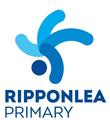Things to know

CURRICULUM INFORMATION YEARS 1-6 – FEEDBACK PLEASE!
In previous years, we have run onsite information sessions where we invite parents/carers to come along and listen to our teams deliver information about the learning program. This year we tried something a little different through recording a presentation by the teaching teams (shared via Compass on our YouTube account), followed by an invitation to ask questions and then to have these addressed by the team at a virtual meeting. As this is the first time we have tried this format, we would eagerly appreciate some feedback. Please take a moment to fill in the Google Form below to provide that feedback. We will launch the remaining Curriculum Information sessions for Foundation and the Specialists programs soon!
https://forms.gle/4ZtrBJui6qRkjY7s9
HOME LEARNING VS HOMEWORK
At Ripponlea we do not set weekly homework in the form of a worksheet. At home, and at school, we like students to be engaged in learning rather than simply completing work. It is intentional that we refer to any work that does go home as home learning rather home work. Home learning is only given when it has a direct link to learning that is happening in the classroom.
Home learning tasks might involve children researching, discussing a particular inquiry topic with family members, discussing ideas for a big write session referred to as a talk task. It might also include revising spelling and mathematical concepts taught in class.
Home learning is purposeful, curriculum-aligned, and appropriate to students’ skill level and age it is designed to help students develop as independent learners, monitored by our teachers and, where appropriate, provide opportunities for parents/carers to partner in their child’s learning.
Reading, or being read to, should remain a constant in every household, but there are times when this is not possible and that’s OK. Families are busy and it is important that time together is enjoyable and as stress free as possible. Most of all we want to encourage our children to read for pleasure and enjoyment and focus on the meaning of the story rather than how many words they can read correctly.
There is strong evidence that homework at the primary school level has little impact on academic performance. Children get greater benefits if we can devote time to play family games, discuss news items from the newspaper or TV, visit places of social, historical or natural interest, cook together, garden together or build together. These activities make learning interesting and enjoyable and encourage children to see the value in becoming lifelong learners.
As always, if you would like to discuss this further, please organise a time to speak with our Principal - Natalie Rose, or your child's classroom teacher.
COMMUNITY USE OF SOCIAL MEDIA
We hope to hear about respectful interactions taking place amongst members of our school community on all social media platforms. What ultimately destroys a community is idle gossip and rumours. We have received feedback that some members of our community use WhatsApps forums to air their grievances or raise concerns rather than contact the school to seek resolution to a matter. It is vitally important that parents reach to our teachers or the school’s leadership team if you have concerns regarding your child or need any clarification on a particular matter.
IT’S NOT OKAY TO BE AWAY FROM SCHOOL
We all want our students to get a great education, and the building blocks for a great education begin with students coming to school each and every day.
If students miss school regularly, they miss out on learning the fundamental skills that will set them up for success in the later years of school.
There is no safe number of days for missing school – each day a student misses puts them behind, and can affect their educational outcomes.
Each missed day is associated with progressively lower achievement in numeracy, writing and reading.
The main reasons for absence are:
Sickness – There are always times when students need to miss school, such as when they’re ill.
Family Holidays - It's vital that holidays are planned during school holidays where possible, and not during the term if it can be avoided.
“Day off” – Think twice before letting your child have a “day off” as they could fall behind their classmates – every day counts.
Truancy – This is when students choose not to go to school without their parent’s permission. There can be many reasons for truancy. The best way to address this is for schools and parents to work together.
CSEF- A MESSAGE FROM THE BUSINESS MANAGER
Dear Parents and Guardians,
If you hold a Centrelink/Services Australia Pension or Health Care Card, you may be eligible for state government funding to assist with camps, sport or excursions.
Attached, please find the application form – this must be completed, signed and returned to the school office for us to lodge. A signed copy of your applicable card is also required.
If you have any queries, please contact ripponlea.ps@education.vic.gov.au
Further information about CSEF can be found here https://www.education.vic.gov.au/about/programs/Pages/csef.aspx
Kind regards,
Rachel Helyer
Business Manager


